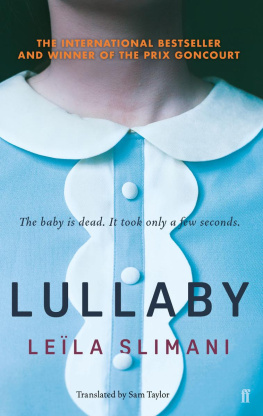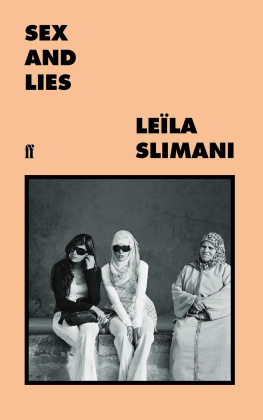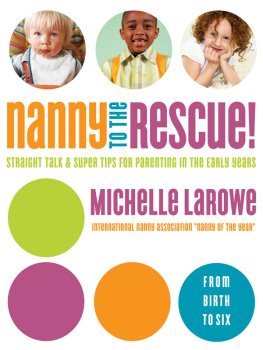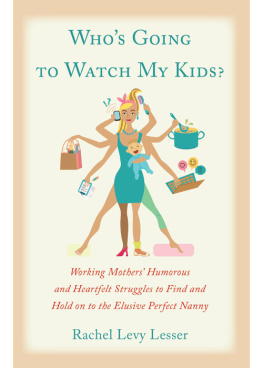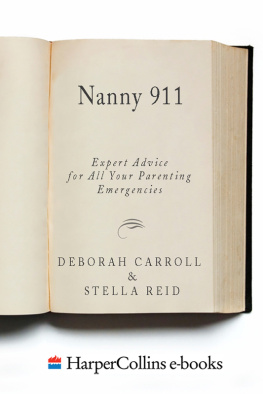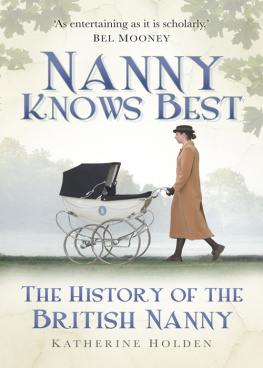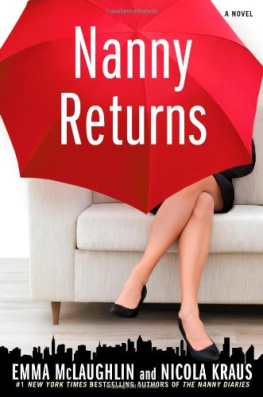Miss Vezzis came from across the Borderline to look after some children who belonged to a lady until a regularly ordained nurse could come out. The lady said Miss Vezzis was a bad, dirty nurse, and inattentive. It never struck her that Miss Vezzis had her own life to lead and her own affairs to worry over, and that these affairs were the most important things in the world to Miss Vezzis.
Do you understand, dear sir, do you understand what it means when there is absolutely nowhere to go? Marmeladovs question of the previous day came suddenly into his mind. For every man must have somewhere to go.
The baby is dead. It took only a few seconds. The doctor said he didnt suffer. The broken body, surrounded by toys, was put inside a grey bag, which they zipped shut. The little girl was still alive when the ambulance arrived. Shed fought like a wild animal. They found signs of a struggle, bits of skin under her soft fingernails. On the way to the hospital she was agitated, her body shaken by convulsions. Eyes bulging, she seemed to be gasping for air. Her throat was filled with blood. Her lungs had been punctured, her head smashed violently against the blue chest of drawers.
They photographed the crime scene. They dusted for fingerprints and measured the surface area of the bathroom and the childrens bedroom. On the floor, the princess rug was soaked with blood. The changing table had been knocked sideways. The toys were put in transparent bags and sealed as evidence. Even the blue chest of drawers will be used in the trial.
The mother was in a state of shock. That was what the paramedics said, what the police repeated, what the journalists wrote. When she went into the room where the children lay, she let out a scream, a scream from deep within, the howl of a she-wolf. It made the walls tremble. Night fell on this May day. She vomited and that was how the police found her, squatting in the bedroom, her clothes soiled, shuddering like a madwoman. She screamed her lungs out. The ambulance man nodded discreetly and they picked her up, even though she resisted and kicked out at them. They lifted her slowly to her feet and the young female trainee paramedic administered a tranquilliser. It was her first month on the job.
They had to save the other one too, of course. With the same level of professionalism; without emotion. She didnt know how to die. She only knew how to give death. She had slashed both her wrists and stabbed the knife in her throat. She must have lost consciousness, lying next to the cot. They took her pulse and blood pressure. They moved her on to the stretcher and the young trainee applied pressure to the wound in her neck.
The neighbours have gathered outside the building. Women, mostly. It will soon be time to fetch their children from school. They stare at the ambulance, puffy-eyed. They cry and they want to know. They stand on tiptoe, trying to make out what is happening behind the police cordon, inside the ambulance as it sets off, sirens screaming. They whisper to one another. Already the rumour is spreading. Something terrible has happened to the children.
It is a handsome apartment building on Rue dHauteville, in Pariss tenth arrondissement. A building where neighbours offer friendly greetings, even if they dont know each other. The Masss apartment is on the fifth floor. Its the smallest apartment in the building. Paul and Myriam built a dividing wall in the living room when their second child was born. They sleep in one half of that room, a cramped space between the kitchen and the window that overlooks the street. Myriam likes Berber rugs and furniture that she finds in antique stores. She has hung Japanese prints on the walls.
Today she came home early. She cut short a meeting and put off the examination of a dossier until tomorrow. Sitting on a folding seat on a Line 7 train, she thought about how she would surprise her children. During the short walk from the metro station, she stopped at a bakers. She bought a baguette, a dessert for the little ones and an orange cake for the nanny. Her favourite.
She thought about taking the children to the fairground rides. After that, they would buy the food for dinner together. Mila would ask for a toy, Adam would suck on a crust of bread in his pushchair.
Adam is dead. Mila will be too, soon.
No illegal immigrants, agreed? For a cleaning lady or a decorator, it doesnt bother me. Those people have to work, after all. But to look after the little ones, its too dangerous. I dont want someone whod be afraid to call the police or go to the hospital if there was a problem. Apart from that not too old, no veils and no smokers. The important thing is that shes energetic and available. That she works so we can work. Paul has prepared everything. Hes drawn up a list of questions and scheduled thirty minutes for each interview. They have set aside their Saturday afternoon to find a nanny for their children.
A few days before this, Myriam was discussing her search with her friend Emma, who complained about the woman that looked after her boys. The nanny has two sons here, so she can never stay late or babysit for us. Its really not practical. Think about that when you do your interviews. If she has children, itd be better if theyre back in her homeland. Myriam thanked her for the advice. But, in reality, what Emma said had upset her. If an employer had spoken about her or one of her friends in that way, she would have cried discrimination. To her, the idea of ruling a woman out of a job because she has children is terrible. She prefers not to bring the subject up with Paul. Her husband is like Emma. Pragmatic. Someone who places his family and his career above all else.
That morning, they went to the market together, all four of them. Mila on Pauls shoulders, Adam asleep in his pushchair. They bought flowers and now they are tidying up the apartment. They want to make a good impression on the nannies who will come here. They pick up the books and magazines that litter the floor around and under their bed, and even in the bathroom. Paul asks Mila to put her toys away in large plastic trays. The little girl refuses, whining, and in the end he piles them up against the wall. They fold the childrens clothes, change the sheets on the beds. They clean, throw stuff away, try desperately to air this stifling apartment. They want the nannies to see that they are good people; serious, orderly people who try to give their children the best of everything. The nannies must understand that Myriam and Paul are the ones in charge here.
Mila and Adam take a nap. Myriam and Paul sit on the edge of their bed. Anxious, uncomfortable. They have never entrusted their children to anyone before. Myriam was in her last year at law school when she became pregnant with Mila. She graduated two weeks before the birth. Paul was getting more and more work placements, full of that optimism that had drawn Myriam to him when they first met. He was sure hed earn enough money for both of them. Certain that, despite the financial crisis, despite budget restrictions, he would forge a career in the music industry.
*
Mila was a fragile, irritable baby who cried constantly. She didnt put on weight, refusing her mothers breast and the bottles that her father prepared. Leaning over the crib, Myriam forgot that the outside world even existed. Her ambitions were limited to persuading this puny, bawling infant to swallow a few ounces of milk. Months passed without her even realising. Paul and she were never separated from Mila. They pretended not to notice as their friends got annoyed, whispering behind their backs that a baby has no place in a bar or a restaurant. But Myriam absolutely refused to consider using a babysitter. She alone was capable of meeting her daughters needs.

